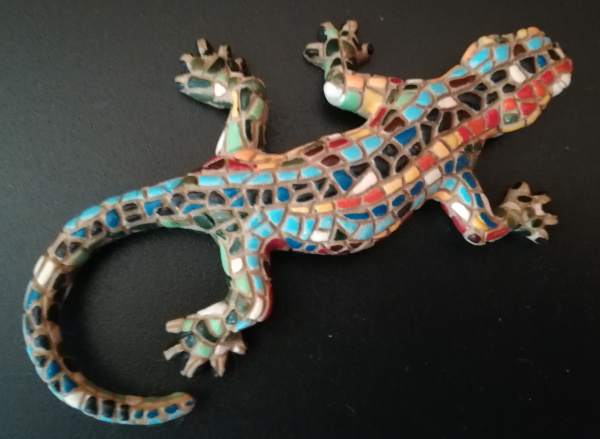Ruolo: Curatore
Ruolo: Ricercatore
Ruolo: Curatore
Re–centring literature, pp. 21-30
Home and exile, pp. 31-40
Disowning ownership : «white writing» and the land, pp. 41-72
Time, territory and literature, pp. 73-84
A journey to «The antipathies» : a literary charting of Australia, pp. 85-95
Little Belfast becomes boom–town, pp. 105-112
Post–colonial poetry in India : a weather report, pp. 113-128
A gender–mapped geography of Canada : «roughing it in the bush», by Susanna Moodie, pp. 129-138
(Re)writing the alphabet of place : a «nomadic» reading of Daphne Marlatt's «How hug a stone», pp. 139-154
The bishop and the fakir : mapping out colonial and Hindu India, pp. 155-174
«Anomie» : universal processes and local instantiations in Chinua Achebe's «No longer at ease», pp. 175-212
Crossing Boundaries : Avey Johnson's Quest in Paule Marshall's «Praisesong for the widow», pp. 221-230
Ayi Kwei Armab and «Great time» : a reading of «Osiris rising», pp. 231-246
Mapping out the territory, and the soul, pp. 247-258
On southern shores, pp. 259-264
Spaces and places : realism versus idealism in H.H. Richardson's «The fortunes of Richard Mahony», pp. 265-276
Abrogation and appropriation in V.S. Naipaul's «The enigma of arrival», pp. 277-288
The island self as world text in the work of Derek Walcott and Romesh Gunesekera, pp. 289-307
The geographic story : aboriginal country, pp. 319-330
Geographical memory in aboriginal literature written by women, pp. 331-344
Geography and history as literary themes and devices at work in Michael Ondaatje's «The english patient», pp. 345-354
The geography of the imagination : spatial–temporal perspectives in Walcott's «Omeros», pp. 355-372
An uprooted route : adetola street, Ken Saro–Wiwa's Lagosian microcosm, pp. 373-388
«Islands» and «Continents» in west indian fiction : a post–colonial reading, pp. 389-398
«Nothing like a journey into the interior of a savage land to separate the true from the false» : Estienne Barbier's spatial «His–stories» in André Brink's «On the contrary», pp. 399-412
An interview with André Brink, Milan, 21 April 1997, pp. 413-422
Identity, geography, and post–colonial diaspora, pp. 431-442
«Sinking hopeful roots into difficult soil.» Caryl Phillips' «Crossing the river», pp. 443-458
Language as Identity in Rohinton Mistry's «Such a Long Journey», pp. 459-466
Nuruddin Farah's «Maps» : the faint borderland of a warrior of words, pp. 467-472
Dennis Brutus and the lay of the land, pp. 481-492
African voices from prison, pp. 492-506
Land and struggle in the novels of bessie head, pp. 507-524
Woman, geography and ideas in Doris Lessing's «The grass is singing», pp. 525-544
From Barbados to Canada : a metropolitan route through Austin Clarke's stories, pp. 545-560
Obscure sorrow hill, seminal ground of endless creation, pp. 569-580
Living in Limbo, pp. 581-594
The scented unknown : beyond the fourth dimension in three african novels, pp. 595-616
When literature gives life to the landscape : the ras lila theatre of braj, pp. 617-630
The inner world : living in Janet Frame's maniototo, pp. 631-650
Transformations : water and wilderness in Liam Davison's «The white woman», pp. 651-666
The river and raja rao, pp. 667-674
Sketching the cape : Thomas Pringle's «poems illustrative of South Africa», pp. 685-696
The journey of the poetic word in Derek Walcott's «The Arkansas testament», pp. 697-708
Deep in the land. Roots and subterranean connections of the poetry of Seamus Heaney in the mid–seventies, pp. 709-722
Place, name, narrative and being in «The great world» by David Malouf, pp. 723-736
Topology vs geometry : the relational geography of self and other in David Malouf's «An imaginary life» and «Remembering babylon», pp. 737-750
The Land and the Language : Derek Walcott and St. Lucia, pp. 751-768
Sweet and sour milk of motherland : space, cadence and style in the novels of Nuruddin Farah, pp. 769-781
| # | Collocazione | Prestabile | Disponibilità | |
|---|---|---|---|---|
| IRCRES (TO) - CERIS | Seminario: J3/30 | Si | Biblioteca |


